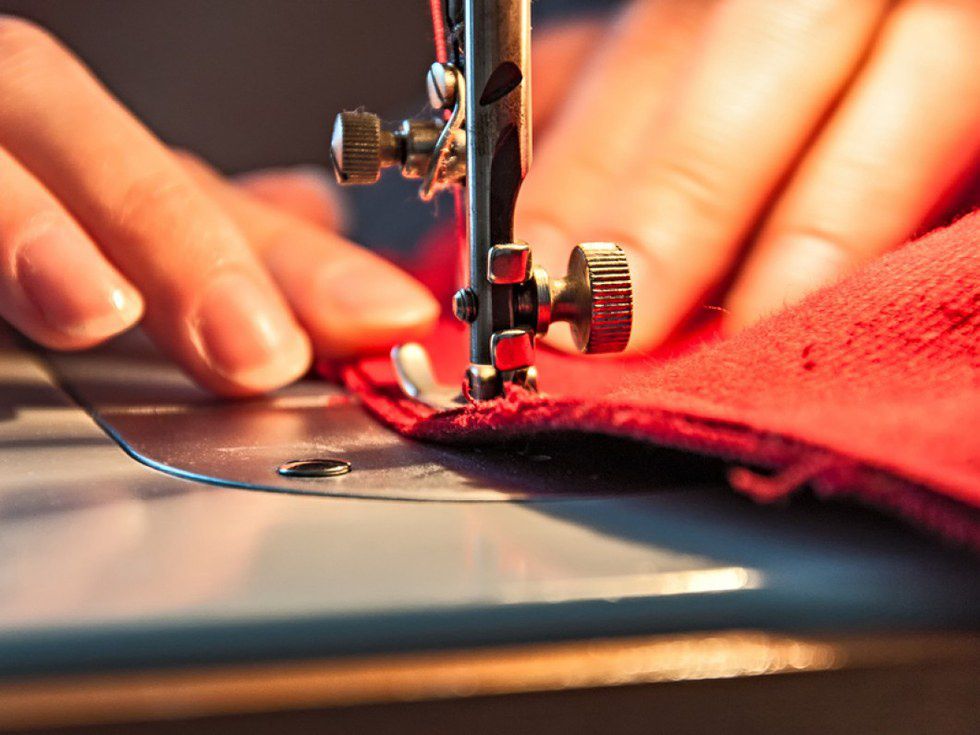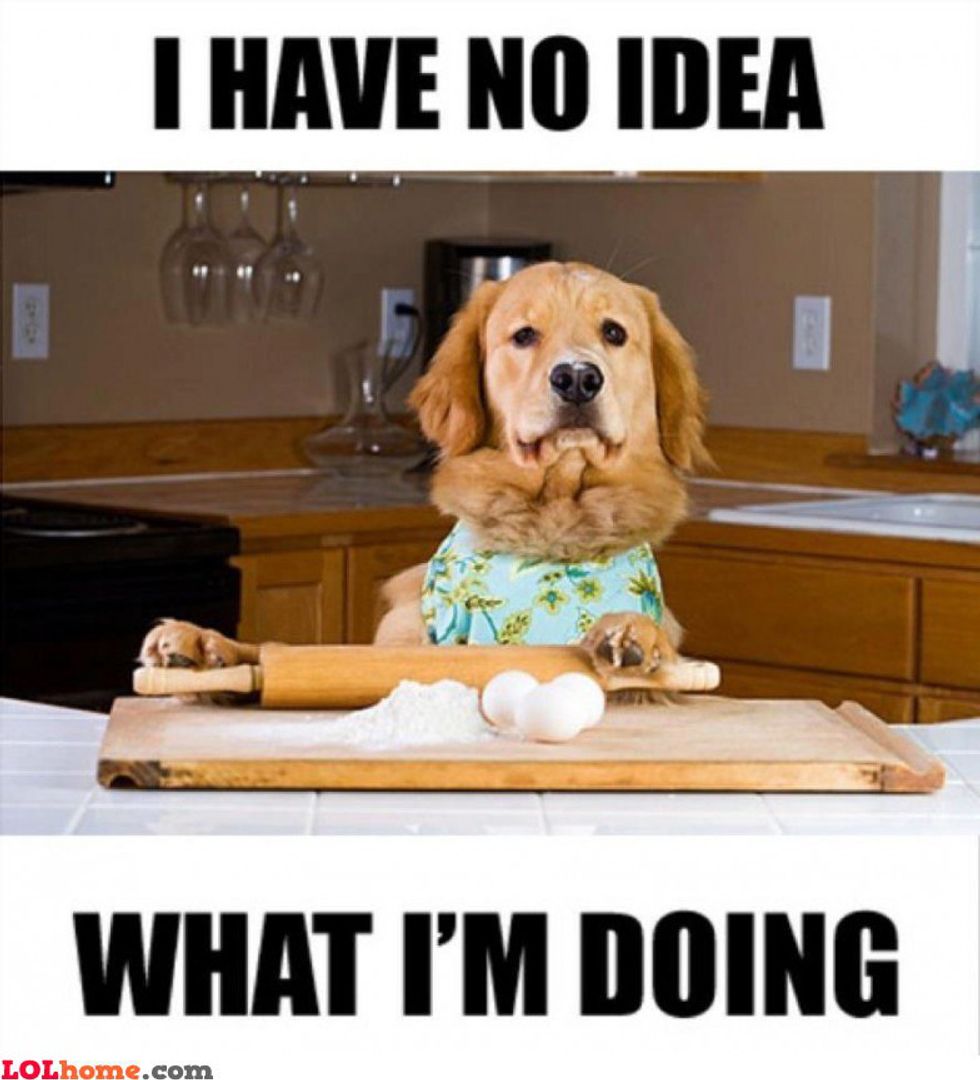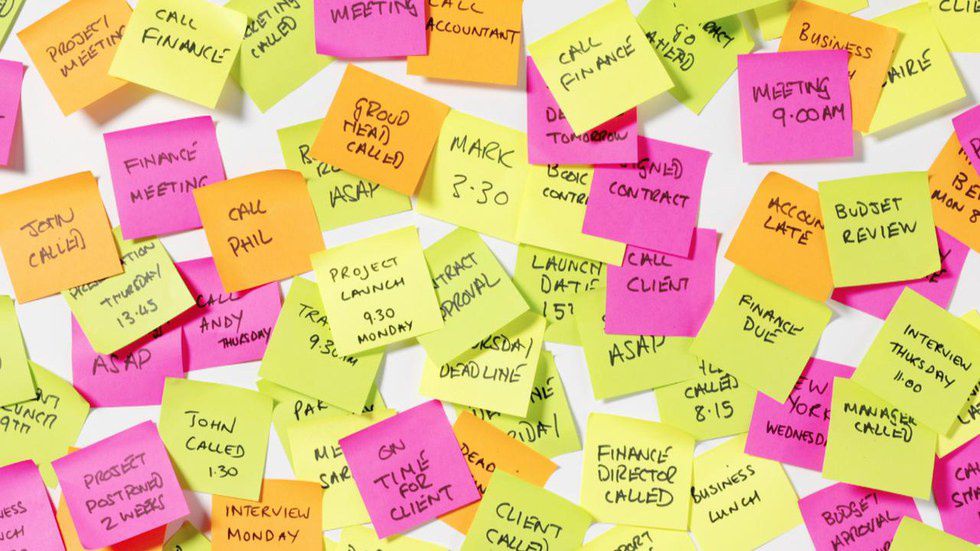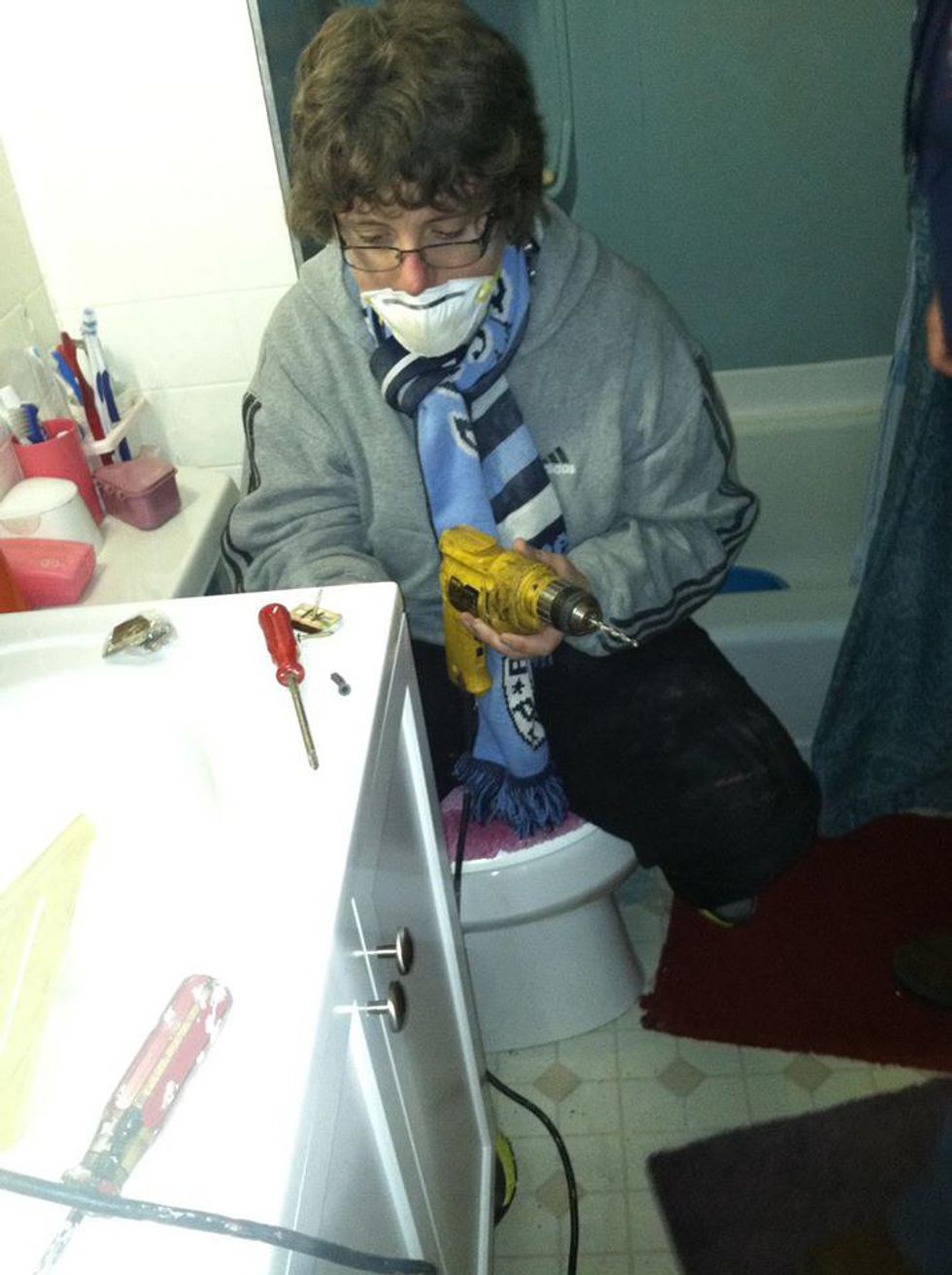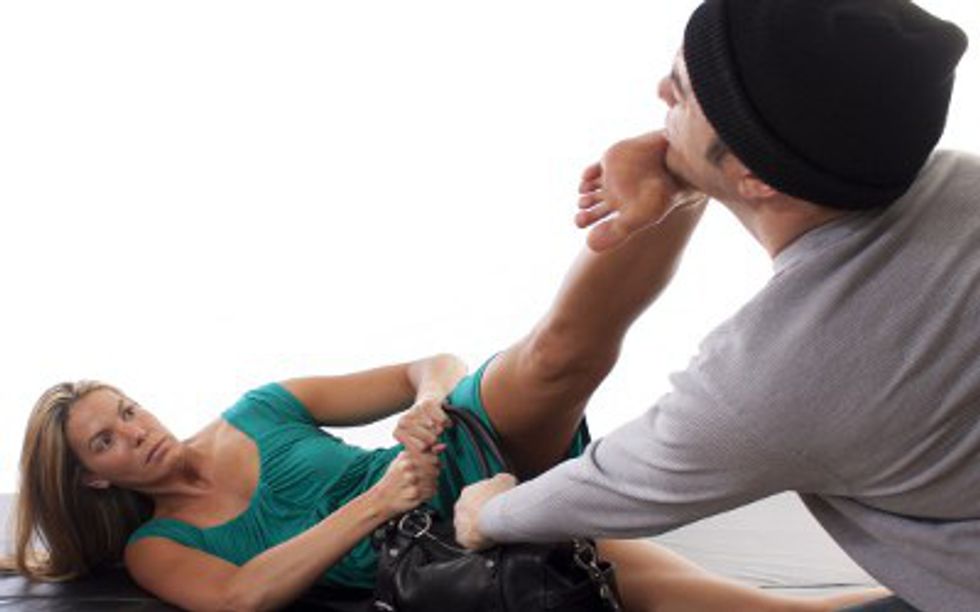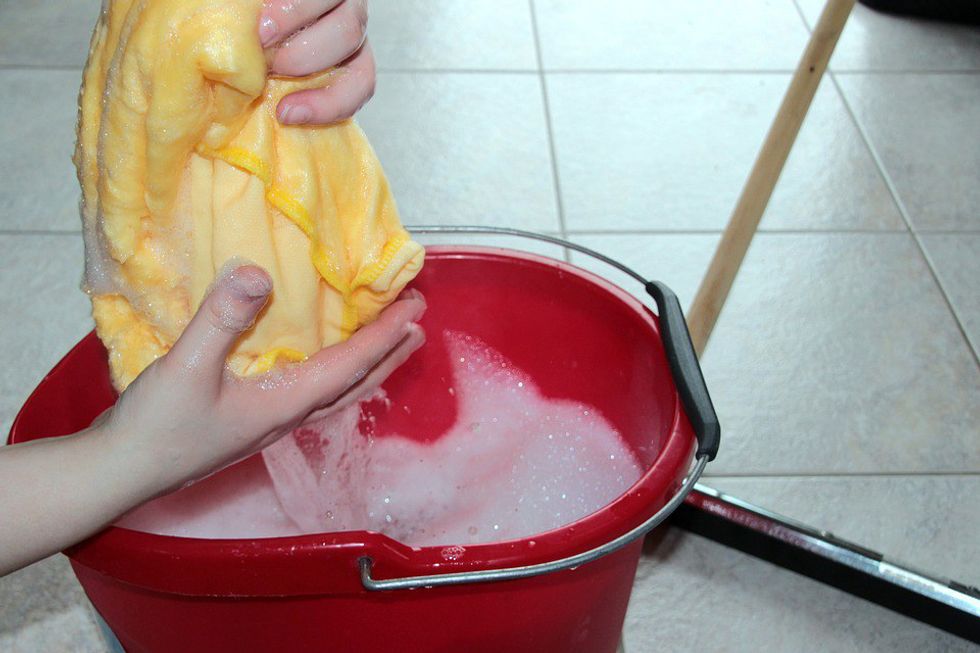Let's be real here: I'm not the first person to talk about this, but since this isn't going to come up in any of the debates this election, no one's going to address it on TV because it doesn't get "the ratings," yet everyone knows it: I haven't used half of what I learned in high school since I graduated. The things I did need learn, that were useful, were often cast aside as "electives," or I had to voluntarily go out of my way in some way to learn some of them.
1. Sewing
Apparently, knowing how to sew on a button is less important than the Cartesian coordinates, even though I haven't used that once other than some college courses — and I have three jackets that need to be re-buttoned and winter is coming before you know it. They're already selling pumpkin spice lattes again.
Thankfully, my high school had a sewing class that was an elective — but the teacher got injured, and we never got to learn how to tailor. So, I graduated knowing all about "The Crucible" but nothing about how to unstitch a hem that might undo an expensive dress. Thankfully, I eventually learned that, but I had to actively take the initiative to take sewing classes alongside my studies at college because I knew that knowing how to tailor was an important skill that I will use for the rest of my life, unlike pre-calc.
2. Taxes
This is major.
I have no idea how to do my taxes, and I'm 22 years old. Yet I can tell you all about the social commentary of Mark Twain's books and how to use the Pythagorean theorem. The only thing I've used Mark Twain for is that I remembered who he was when he showed up in the Guild Arc of "Bungou Stray Dogs." I have yet to use the Pythagorean theorem once, and I doubt that there's a sexy anime counterpart for it like there is for Twain. Of course, Japan or the internet will find a way eventually, I'm sure — just give a few years.
Have us learn how to save for retirement, how social security works (does it even work?), what certain benefit programs do and how you can apply for them if you think you'll need them in the future, how certain districts have higher taxes than others and why, and how income brackets work. Have us learn more about the stock market, loans and interest.
Hopefully I can pay off my student loans by making a manga about math equations personified as hot anime studs and ladies. That's plan number 3,245 of what I'm doing after graduating from Carlow.
3. Cooking
I don't think about Steinbeck's "The Pearl" or how to find the volume of a cube several times every day, but you know what I do think about that often?
Food.
Alright, I'm just going to get this out here: we did have a health class that we all had to pass where we talked about the food pyramid. We also had a cooking class, but that was an elective. However, even in our required health class we didn't cover how to make the food, just what it was. There's a big difference. You can talk about how great greens are, but why not bring in a vegetable like a cucumber, show us how to slice it and have us learn how to prepare a meal that's nutritious and simple enough that we can remember it. Something more than just mac 'n' cheese, pasta, grilled cheese, ham and cheese sandwiches and scrambled eggs. If you just talk to us about it, you might as well just have us watch "Veggietales."
4. How To Use Public Transportation
A lot high schools, including mine, forced you to take driver's ed. However, with a growing number of Americans who don't have a driver's license, and the growth of urbanization, I think it's important that we also take a look at how to use public transportation as well. Even if you have a driver's license, it's probable that you'll use public transportation at least once to go to major events like art festivals, concerts and sporting events in the city.
Granted, you may not be able to take them to an actual bus station or subway, but at least cover certain programs, services and the maps and routes of whatever the local public transit systems are — if we're going to cover one use of getting from point A to point B, why not talk about others?
5. Interview Practicing & Business Etiquette
Nothing is more gut-wrenching than coming out of an interview thinking, "Oh, Jesus, they must think I'm a total freak. They'll never call me again. I totally messed up. Why did I even bother?". Knowing how to act, dress and reply to common interview questions is vital, both to college-bound and non-college bound students.
Also, learning how to build your resume is something I think is important enough that every high school graduate should know how to do.
6. Time Management
Something that I think is the main cause of so many college students' demise is poor time management. They either spent too much time studying that they freak out and don't take proper care of themselves so they wind up having a mental breakdown, or they spend not enough time studying and too much on alcohol, video games, Netflix or partying.
If we were to teach and stress how important time management is in high school, perhaps we could decrease the amount of college students that drop out. You have to have a balance of self-care and work ethic.
7. Managing A Budgeting
Knowing how and where to look for deals, money-saving coupons and learning to be able to let go of something that you initially think you want. ("Alright, I can wait until that dress goes on sale", or "I actually don't need lipstick, I don't even wear makeup that often").
8. How To Fix Things
Yes, that's 18-year-old me with a screwdriver putting in a new toilet holder in an old Chinese woman's bathroom. This was on a long weekend service trip with the Pittsburgh Project that I did with my mom. I've learned how to spackle, paint, sand (both manually and with an electronic one) and use screwdrivers all from missions trips. I've used those skills far more than knowing who did what in "Fahrenheit 451" or what certain shapes are quadrilaterals.
Although my high school had wood shopping, it was (again) an elective, which is on the cutting board for many schools, especially in low-income neighborhoods.
However, those who don't go on mission trips like this could very well miss out on important skills like these and have to end up paying a mechanic who overcharges them. Teaching kids how to do these sorts of things would save them hundreds, if not thousands, of dollars in the future.
9. Self-Defense
This is important, especially for women. We had this as an option in gym class, and I'm glad that I took it. I do wish that they discussed self-defense tips more in class. Don't go near construction sites in the night. Don't go out alone in the nighttime. Anything can be used as a weapon: keys, pens, jewelry, etc. Look back and check to see if someone's following you every few minutes. These are life-saving skills. Even men could benefit from these lessons; it's not only women who are mugged.
10. Cleaning
I had to learn how to do these sorts of things like laundry and dishes after the death of my father. I had to take up a load of the housework to make up for the loss in the family. However, some are fortune enough that they don't lose someone and get to keep their innocence well past high school. However, eventually the chick has to leave the roost or the mother grows too ill to clean, and that's when they realize high school forgot to teach them something vital to modern life.
If you're thinking, "Oh, this is just for ladies", no, believe me, dear gentlemen, when I say that living in a pigsty is a definite turn-off. It's also good to clean up if you're having guests over, or if you're trying to sell the house.
Plus, knowing how to clean your clothes is a must. Sure there might be people out there that like those who smell funky, but most people tend to shy away from them. They also tend to not get hired as often as those who keep themselves well-kept.




